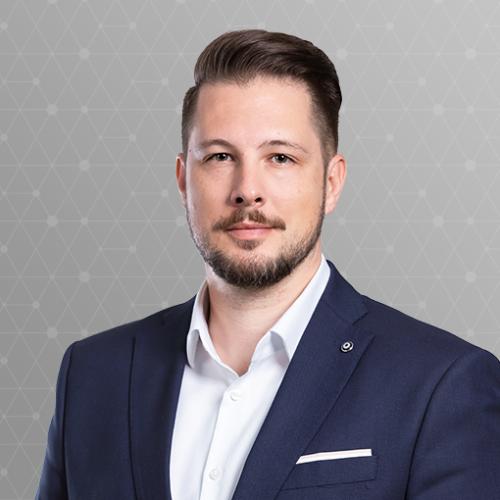A new chapter is opening in the world of digital advertising. Success is no longer just about running campaigns effectively. While these remain important, the real difference increasingly lies in a company's ability to understand advertising as a complete system. By 2025, the focus will be on seeing advertising as an integrated structure that combines business objectives, data, communication channels, and technology into a single, coherent platform. While advertising campaigns still hold value, they are most powerful when they are embedded in a broader, strategically designed approach. Fraport Slovenia is already implementing this approach. The company is focusing on building systems that ensure the resilience, scalability, flexibility, and long-term impact of its advertising activities.

Why is advertising architecture being discussed more and more today?
Systemic advertising means that no investment is an isolated decision, but rather part of a larger mechanism. The data a company collects is linked to content that is distributed through carefully selected channels. This content is supported by technology that continuously measures and optimizes its impact. The goal is to reach the right people in the right way at the right frequency to effectively achieve goals, not just to reach as many people as possible.
Companies that have mastered this transition no longer ask how much to invest; rather, they ask why and how to structure their investment so that it works as part of an intelligent system. One of the most advanced examples of this shift is the Ljubljana Airport FLY 2.0 project, developed by Fraport Slovenia in collaboration with iPROM. In 2024, the project was upgraded with reinforcement learning powered by artificial intelligence (AI).

A strategic shift from campaign to intelligent infrastructure
Ljubljana Airport Fly is an advertising platform designed to promote air destinations from Ljubljana Airport. Since 2021, it has operated using first-party data collected, managed, and activated by Fraport Slovenia in the iPROM Private DMP. This enables highly relevant display advertising on over 60,000 online media properties on the open web.
The real turning point came in 2024 when the platform was upgraded with artificial intelligence based on reinforcement learning. Instead of simply automating certain decisions, the system began to independently identify the most effective users, creative solutions, timeframes, and channels. A key element of this upgrade is a mechanism that continuously tests, adapts, and reinforces strategies that prove effective.
The results have been clear, measurable, and impressive. In one year, the platform sold almost 30,000 airline tickets, reduced the cost per customer acquisition from €2.06 to €1.85, raised the conversion rate from 12% to nearly 16%, and increased overall efficiency by 30%. For Fraport Slovenia, advertising has become a well-considered investment in a system that creates long-term value, not just a cost.

What can companies learn from Fraport Slovenia?
The key difference between ad optimization and system optimization is perspective. Ad optimization measures the success of individual campaigns, while system optimization builds the infrastructure that makes each successive campaign smarter, more efficient, and better aligned with the business strategy.
In the case of the Ljubljana Airport FLY 2.0 platform, artificial intelligence not only runs campaigns but also acts as an intelligent mechanism to acquire customers. This success is not just the result of a good idea, but of a clearly defined system that combines the centralization of first-party data, a trusted advertising environment, advanced AI, and full control over all campaign elements.
Developing an open media infrastructure for tourism
By 2026, the Ljubljana Airport FLY platform will evolve from an internal advertising tool into an open media infrastructure for tourism and retail providers. Travel agencies, hotel chains, and other airport partners will have access to an AI system that has already learned to target a qualified audience with clear purchase intent. They will no longer depend on external platforms or intermediaries but will operate within an independent infrastructure.
This vision ushers in a new era of digital advertising where companies compete not only on creativity, but also on the strength of their systems. The DIGGIT 2025 jury recognized the technological innovation of the platform as an independent, automated advertising system and awarded the project the Gold Award for Use of Data and the Grand Prize for Digital Efficiency in Digital Advertising.

The time to build systems is now
For companies that want to build sustainable competitiveness, shifting from ad optimization to system architecture is becoming essential. In a world where digital attention is scarce and user expectations are high, the winners are those who design their advertising campaigns as living systems that learn and adapt, eventually becoming a source of growth in their own right.
Ljubljana Airport Fly has demonstrated the effectiveness of shifting to a systems approach in advertising. Once the architecture’s foundations are in place, advertising becomes more coherent, delivers greater impact, and contributes to a company’s competitive advantage.
